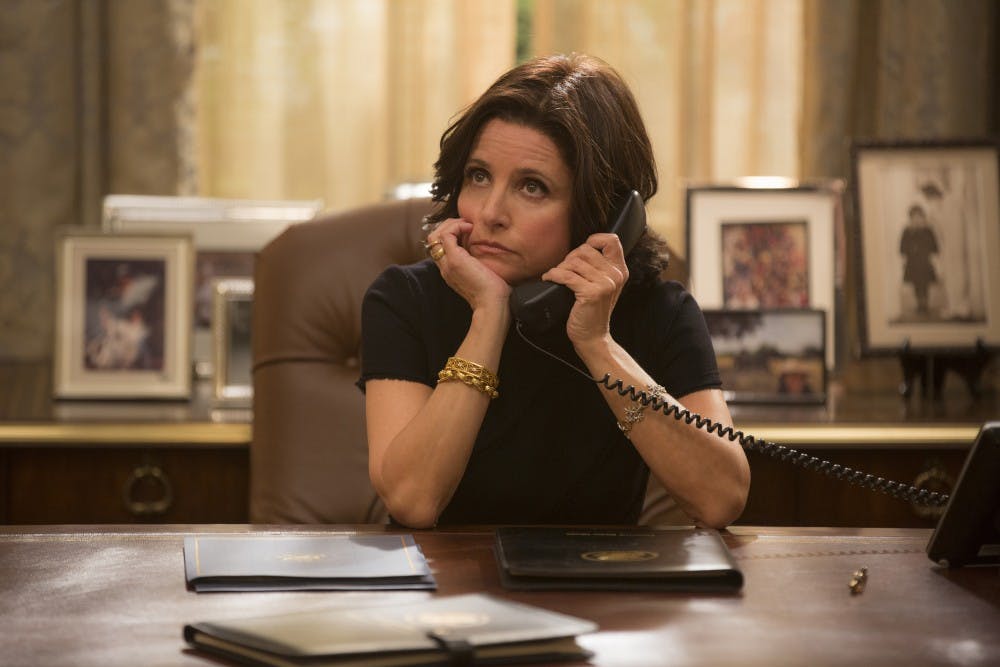‘Veep’
Grade: B+
There are two types of fictional shows about politics.
There’s the “House of Cards” type, which consists of well-dressed, sharp, noble individuals playing the game in ruthless, cold, manipulative ways and comes off as a modern-day Shakespeare drama.
And then there’s “Veep.”
President Selina Meyer, played by Julia Louis-Dreyfus, spearheads the political comedy, which focuses on vulgarity, name-calling and outright awful people attempting to make it big in the political landscape.
Instead of suave sophisticated persons, “Veep” portrays those running the nation as petty children. It’s a big swing, and it pays off.
The insults are hasty and nasty as characters try to accomplish their own personal goals, no matter whom they have to knock down on their journey.
Dreyfus’s President Meyer is perhaps the most conniving of the bunch, yet her team is made up of quite a few devious minds. Tony Hale, Anna Chlumsky, Gary Cole and now Patton Oswalt are key members in the “Veep” cast.
The plot of the first few seasons revolved around Vice President Meyer attempting to make a name for herself in the White House. The president wouldn’t talk to her and every episode saw a new setback which Meyer handled indelicately.
After the former president had to step down because of family troubles, Meyer now finds herself as the leader of the nation. We see in episode four that there will be quite a few obstacles along the way.
What “Veep” does best is turn these dastardly characters into genuine people. As the show evolves, the characters’ motives for climbing the political ladder become clearer.
“Veep” isn’t a show lauding politics, but it isn’t against it, either. Instead, it focuses on the mish-mosh of stellar actors who get in unfortunate circumstances and have to dig their way out of them.
Also, sometimes it’s just nice to see one character on television call another a “gold-plated shit gibbon.”



